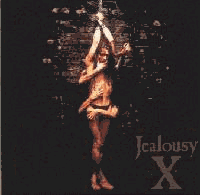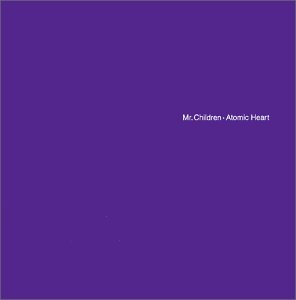Enka (演歌) is a popular Japanese music genre considered to resemble traditional Japanese music stylistically. Modernenka, however, is a relatively recent musical form, while adopting a more traditional musical style in its vocalism than ryūkōka music, popular during the prewar years.
Sherbet was one of the most successful Australian rock bands of the 1970s. The 'classic line-up' of Daryl Braithwaite on vocals, Tony Mitchell on bass guitar, Garth Porter on keyboards, Alan Sandow on drums, and Clive Shakespeare on guitar provided their teen-oriented pop style. In 1976 Shakespeare left and was soon replaced by Harvey James. Sherbet's biggest singles were "Summer Love" (1975) and "Howzat" (1976), both reaching number one in Australia. "Howzat" was also a top 5 hit in the United Kingdom. The band was less successful in the United States, where "Howzat" peaked at No. 61. As The Sherbs they also reached No. 61 in 1981 with "I Have the Skill". The group disbanded in 1984. Subsequent re-unions have occurred since 1998.
Southern All Stars, also known by the abbreviations Sazan (サザン) and SAS, are a Japanese rock band that first formed in 1974.

Hideto Matsumoto, also known as hide, was a Japanese musician, singer-songwriter and record producer. He was the lead guitarist of the rock band X Japan from 1987 to 1997 and a solo artist from 1993 onward. He also formed the United States-based rock supergroup Zilch in 1996.

Tatsurō Yamashita, occasionally credited as Tatsu Yamashita or Tats Yamashita, is a Japanese singer-songwriter and record producer who helped pioneer the style of Japanese adult-oriented rock/soft rock dubbed "city pop". Yamashita has produced the majority of his music since the 1970s and is considered an important contributor to Japanese music. He has also collaborated with his wife Mariya Takeuchi, another influential Japanese singer as well as Alan O'Day with whom he wrote hit songs "Your Eyes", "Magic Ways" "Love Can Go the Distance" and "Fragile."

Asian Kung-Fu Generation is a Japanese alternative rock band formed in Yokohama, Japan, in 1996. For its entire career, the band has consisted of vocalist Masafumi Gotoh, guitarist Kensuke Kita, bassist Takahiro Yamada, and drummer Kiyoshi Ijichi. Starting out as a college band, Asian Kung-Fu Generation released a series of independent EPs featuring lyrics mostly sung in English. In 2002, they released their major-label EP debut Hōkai Amplifier, from that point singing their lyrics in Japanese. The band's musical style is influenced by seminal Western alternative rock acts as well as their own local Japanese indie-rock and punk scene. Their songs incorporate various aspects of the genres, most typically expressing fast tempos and prominent power chord guitar riffs in addition to rhythmic groove and emotional lyrics. Despite the indie nature of their music, the band has enjoyed worldwide commercial success in addition to critical acclaim. Asian Kung-Fu Generation has been cited as one of the best, most balanced modern rock bands to emerge from Japan in the 2000s.

Chihiro Onitsuka is a Japanese singer-songwriter.
The Nolans are an Anglo-Irish girl group who formed in Blackpool in 1974 as the Nolan Sisters, before changing their name in 1980. Often referred to as Ireland's First Family of Music, they were the first Irish performing family to achieve international success, preceding the likes of the Fureys and the Corrs.

Hiroshi Morie, known exclusively by his stage name Heath, is a Japanese musician and singer-songwriter. He is the bass guitarist of the rock band X Japan. He joined the group in 1992 a few months after the ex-bassist Taiji Sawada left the band. Heath stayed with X Japan until the band's dissolution in 1997 and reunited with the band from 2007 onward.

Dahlia is the fifth studio album by Japanese heavy metal band X Japan, released on November 4, 1996 by Atlantic Records. It is the band's last album before breaking up the following year, and the last to feature new work by guitarist hide, due to his death two years later. The album is composed largely of ballads, with only a few tracks retaining the band's heavier musical traits seen on previous releases. It topped the Oricon chart and stayed on the chart for only 15 weeks, but managed to sell over half a million copies. Seven, nearly all, of the album's songs were released as singles, most of which also topped the singles chart and sold well.

Jealousy is the third studio album by Japanese heavy metal band X Japan, then known as simply X. The album was released on July 1, 1991 by Sony, as the band's second major label release. Jealousy is the band's best-selling album, having sold more than one million copies, it topped the Oricon chart and stayed on the chart for 50 weeks. The album's singles would also reach the top three on the chart. It is their last album under the name "X", before changing to "X Japan", and the last to feature Taiji on bass, who would be replaced by Heath.

Ja, Zoo is the third album by Japanese musician hide, released on November 21, 1998. It is also his last studio album as he died on May 2 while recording it, and the only one released under the name hide with Spread Beaver.

Atomic Heart is the fourth studio album by Japanese rock band Mr. Children, released in September 1994. The album features two successful lead singles "Cross Road" and "Innocent World".
Kiyoshi Maekawa is a Japanese singer and tarento.
The 48th Annual Japan Record Awards took place at the New National Theatre in Shibuya, Tokyo, on December 30, 2006, starting at 6:30PM JST. The primary ceremonies were televised in Japan on TBS.
Yū Aku, was a Japanese lyricist, poet, and novelist.

However is the 12th single release by Japanese band Glay on August 6, 1997. It debuted at #1 on the Oricon chart, appearing at that position for 5 weeks in total, selling 1,341,980 copies.
Kyōhei Tsutsumi, was a Japanese composer, record producer and arranger.

The 60th Japan Record Awards was held on 30 December 2018. The Tokyo Broadcasting System Television network televised the show live from the New National Theatre Tokyo in Tokyo. This is the last Heisei-era Japan Record Awards.
The 71st NHK Kōhaku Uta Gassen was the 2020 edition of NHK's television special Kōhaku Uta Gassen, held on December 31, 2020, live from NHK Hall, and broadcast in Japan through NHK General Television and NHK Radio 1, and worldwide through TV Japan and NHK World Premium.











